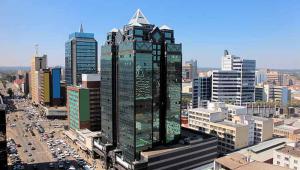Egypt this month liberalised its exchange rate and devalued its currency by almost 50% in a bid to secure a $12bn International Monetary Fund loan.
It has also invested in the economy of Upper Egypt, supported by a World Bank loan of $500m intended to be used to improve private sector development and strengthen local government capacity for infrastructure and service delivery .
The country has also adjusted energy prices to reflect market conditions, and strengthened the social safety net.
“This is an ambitious programme of reforms with a strong focus on job creation and on social measures to support the incomes of the poor and the vulnerable,” said Dr Asad Alam, World Bank country director for Egypt.
“In particular, we are pleased to support the government’s social protection efforts especially in the expansion of the Takaful programme which already reaches about 4.5 million people in extreme poverty, new investments for job creation in Upper Egypt, as well as through labour intensive works for the youth and for women.”
The World Bank’s economic outlook assessment for Egypt last month noted that its nascent recovery had slowed due to the foreign exchange problems, a drop in tourism, and an unfavourable external environment.







